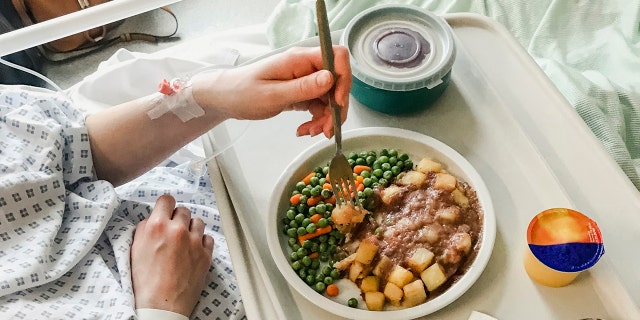A bacterium that can inflame the colon and cause “debilitating” diarrhea is evolving into two separate species, one of which could target – and could contaminate – hospital food, posing a risk to those whose immune systems may already be compromised, a new study says.
Researchers with the Wellcome Sanger Institute, London School of Hygiene & Tropical Medicine and others have “identified genetic changes in the newly emerging species that allow it to thrive on the Western sugar-rich diet, evade common hospital disinfectants and spread easily,” according to a press release on the findings.
The bacterium involved in their study is called Clostridium difficile, or C. diff, which the Centers for Disease Control and Prevention (CDC) says causes nearly 500,000 illnesses in the U.S. each year.
BOY’S RARE DISEASE TOOK 5 YEARS TO DIAGNOSE, FAMILY SAYS
C. diff typically causes diarrhea for several days, fever, stomach pain, loss of appetite and nausea.
For the study, published this week in Nature Genetics and said the be the largest-ever genomic study on the bacterium, researchers collected more than 900 strains of C.diff and then sequenced the DNA of each strain. After “comparing and analyzing all the genomes” they discovered genetic changes within the bacterium that’s causing it to evolve.
One of the emerging species is “specialized to spread in hospital environments,” Dr. Nitin Kumar, one of the study’s main authors, said in a statement.
“This emerging species has existed for thousands of years, but this is the first time anyone has studied C. difficile genomes in this way to identify it. This particular bacteria was primed to take advantage of modern healthcare practices and human diets before hospitals even existed,” Kumar added.

The new strain could target hospital food.
(iStock)
Interestingly, C. diff Clade A – the strain researchers said is primed to target hospital food – first appeared some 76,000 years ago, according to the study, but didn’t increase until the late 1600s when “more modern medical concepts began to take hold,” the New York Post reports.
C. diff Clade A accounted for about 70 percent of the samples from hospital patients, researchers said. This species thrives on carbs and sugar and is resistant to both antibiotics and common hospital disinfectants. In other words, “these changes allow it to spread more easily in health care environments.”
Common hospital foods – such as pudding cups and mashed potatoes, per the New York Post – could be targeted by this strain.
Hospital patients, specifically, are vulnerable to C.diff infections because they are more likely to be taking antibiotics, which “wipe out the normal gut bacteria,” researchers stated. Normal gut bacteria help keep bacterium like C. diff in check.
OHIO GIRL, 5, TEMPORARILY PARALYZED FOLLOWING TICK BITE
C. diff can infect people multiple times, per the CDC, which noted one in five people who’ve had it will get it again.
“Our study provides genome and laboratory-based evidence that human lifestyles can drive bacteria to form new species so they can spread more effectively,” Dr. Trevor Lawley, another primary author, said in a statement.
“We show that strains of C. difficile bacteria have continued to evolve in response to modern diets and health care systems and reveal that focusing on diet and looking for new disinfectants could help in the fight against this bacteria,” he added.
